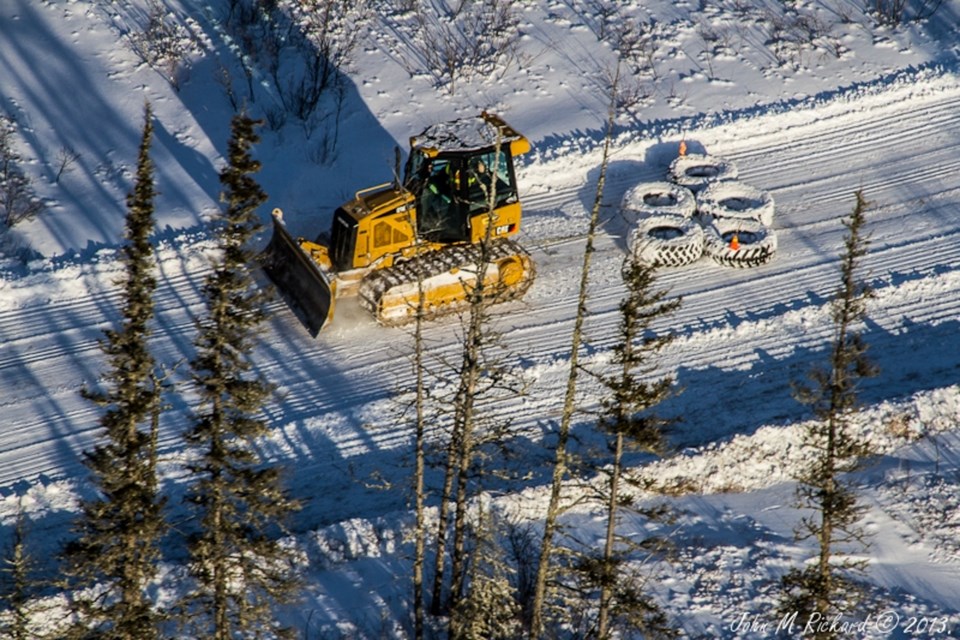Warm weather and heavy snow have delayed the James Bay ice roads.
There are three winter roads on the James Bay coast. The James Bay road connects Moosonee to Attawapiskat and the communities along the way and Wetum Road goes from Moosonee to Otter Rapids. Neither of those roads is open to traffic yet. A smaller road that connects Moosonee and Moose Factory is open with some restrictions.
Nancy Wood, the president of Kimesskanemenow Limited Partnership which operates the James Bay road, said that the opening will be delayed by at least a week.
“We normally try to open by Jan. 15 but it’s likely going to be delayed by at least a week,” she said.
She said the snow levels and the unusually warm weather they’ve been having in the area has slowed construction and the website is advising residents not to drive on the roads due to safety concerns.
“Normally we’d have a good, solid -30 C for a week or two, but we haven’t had that,” she said. “It’s been warmer than it needs to be.”
While construction of the Wetum Road is ongoing, there is no set date for it to open.
On the north part of the road, an update on the Moose Cree First Nation website shows that crews have crossed the Moose River and made an initial pass to the 47-kilometre mark.
"The North French River crossing is to be flooded to increase ice thickness. Swamp areas are soft once snow is cleared. Additional crews will be dispatched to assist with road work," reads the update.
In the south end, snow cats have made an initial pass to the Abitibi river.
"Flooding of Abitibi River is underway to increase ice thickness. Once thick enough, snow cats will cross to continue work on the road," according to the Jan. 9 update.
The ice road between Moosonee and Moose Factory opened to light-duty vehicles under eight tons on Jan, 9.
The road going from McCauley Hill in Moosonee to McLeod Hill in Moose Factory currently has a speed limit of 40 km/h and drivers are being told to drive with caution and to use the road at their own risk.
Concerns about the future of these roads, which are used to transport goods, medicines and people to and from northern communities, were also a focus of a recent York University study.
“This balmy weather could have significant impacts on northern communities who rely on those roads and ice for their existence. These communities will be most impacted by our projected change in the duration and thickness of lake ice,” said Sapna Sharma, an associate professor at York University in a press release.
Up-to-date information on the roads is available on the Kimesskanemenow LP website and the Moose Cree First Nation site.
